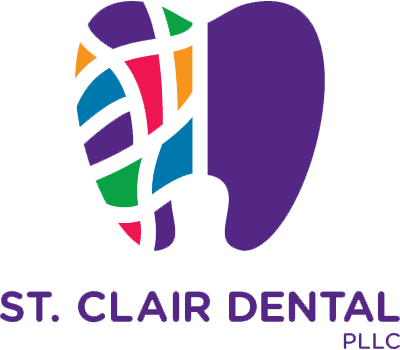Eating disorders are complex mental health conditions that pose severe consequences for various aspects of anyone’s well-being. At Clair Dental PLLC, we understand how difficult eating disorders can be and understand the complex relationship people can have with these disorders. We also understand the effects of eating disorders on the body, including their dental implications. In this article, we’ll work to explore how you can recognize how eating disorders can affect your mouth. If you or a loved one is struggling with an eating disorder, seek professional help to protect your health.
The Dental Consequences of Eating Disorders
When eating disorders such as anorexia, bulimia nervosa, and binge eating are present, it can lead to several oral health issues. Some of the most prominent health issues that come alongside eating disorders include:
- Tooth Erosion: Frequent, self-induced vomiting, often associated with bulimia nervosa, exposes the teeth to your stomach acids. These acids erode the protective enamel of your teeth and can increase the risk of tooth erosion, which can cause cavities and tooth sensitivity.
- Dry Mouth: Some eating disorders, such as anorexia nervosa, can decrease saliva production, leading to dry mouth. A dry mouth prevents the saliva from washing away the bacteria, and when the saliva isn’t present, acids can build up, increasing the risk of tooth decay and gum disease.
- Gum Problems: Alongside tooth problems, the gums can weaken due to the effects of malnutrition, making them more susceptible to infection and inflammation. When this occurs, gingivitis can easily advance into periodontitis, which causes the gums to separate and shrink along the tooth’s smile line.
Recognizing these dental problems with eating disorders can help address these problems at hand. If you or a loved one has an eating disorder, it’s essential to recognize the early warning signs of those eating disorders causing problems with your dental health. Some of the warning signs include:
- Tooth Sensitivity: Increased tooth sensitivity to hot or cold foods can indicate tooth erosion from frequent vomiting or acid exposure.
- Tooth Discoloration: Teeth that appear yellowish or discolored are often the result of enamel erosion caused by stomach acids.
- Bad Breath: Dry mouth, which occurs with eating disorders, can also lead to persistent bad breath that doesn’t go away with normal brushing and flossing.
- Enlarged Salivary Glands: Repeated vomiting can cause the salivary glands to enlarge and swell, causing discomfort in the mouth.
- Mouth Sores: In many cases, malnutrition can result in mouth sores, and those mouth sores can be delayed by a poor immune system, increasing the risk of infection.
Visit St. Clair Dental PLLC For An Appointment Today
If you or someone you love is struggling with an eating disorder, seeking professional help and support is vital. We highly recommend combining proper medical and dental care to help you preserve your health and help you heal. At St. Clair Dental PLLC, we are committed to providing compassionate dental care for those with eating disorders. For more information about our services, call (817) 910-2880 to speak with Dr. Maureen Karl in Granbury, TX, to learn more.

